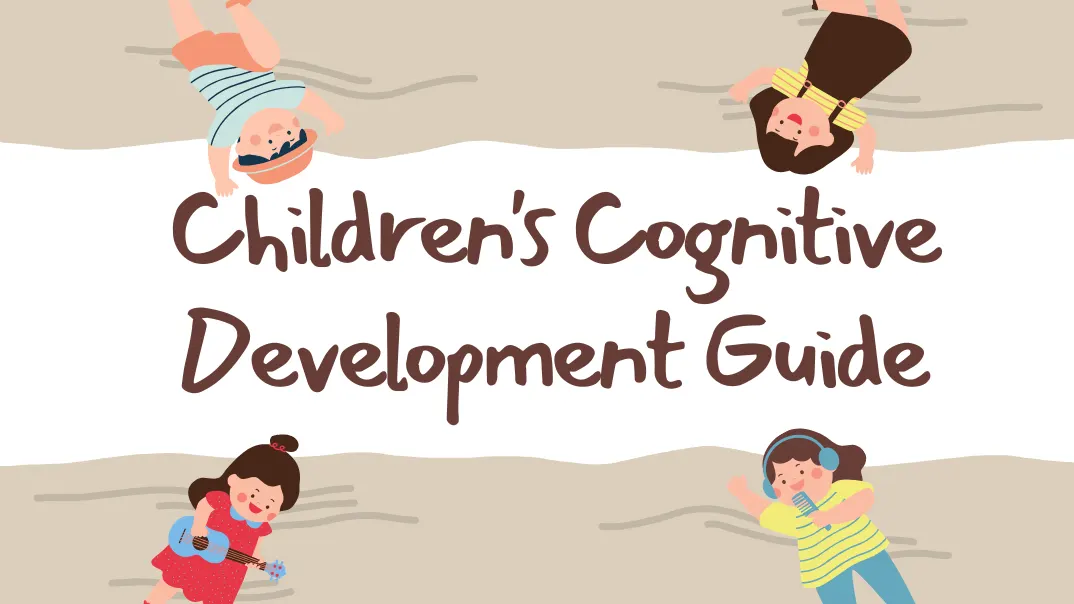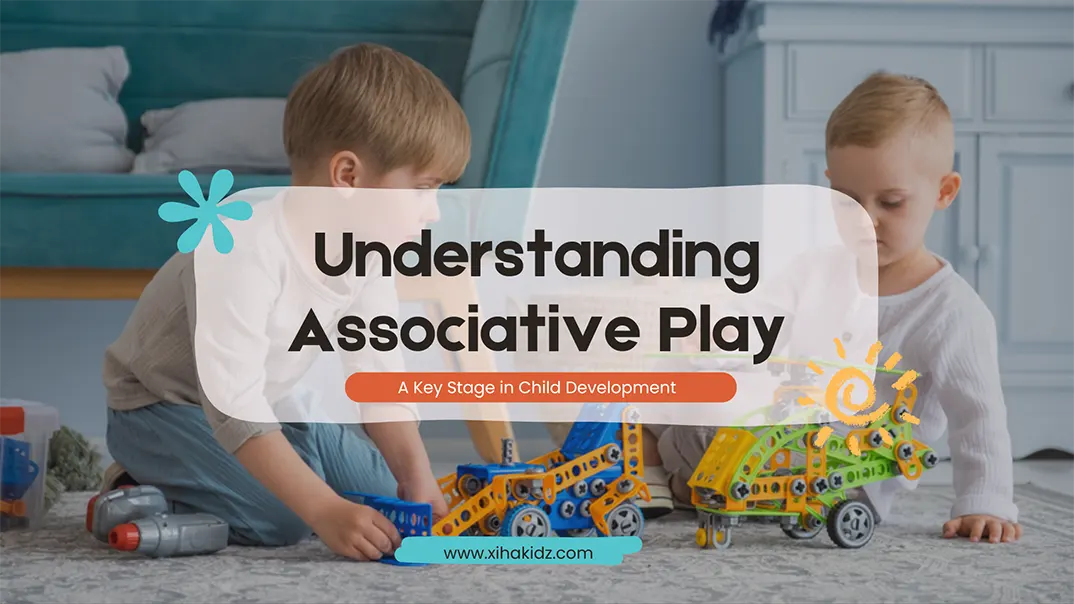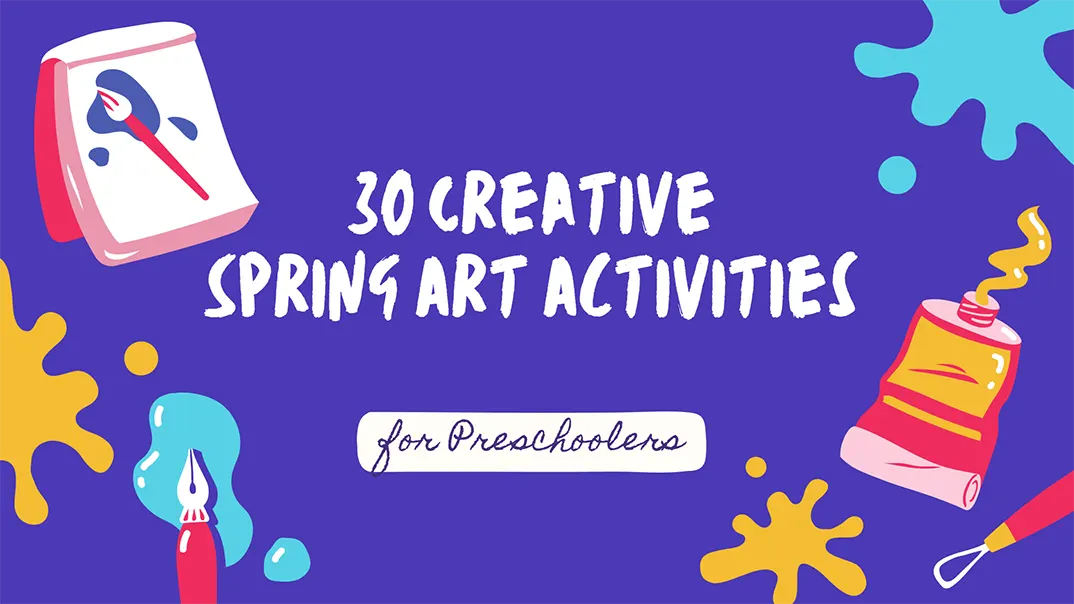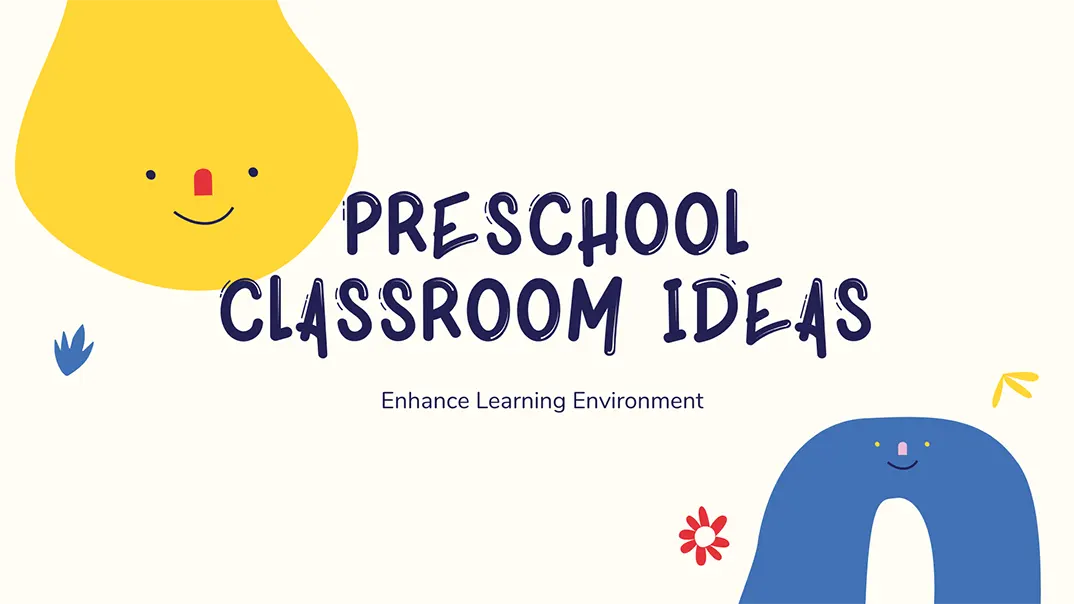As a parent, educator, or caregiver, have you ever wondered how children’s minds evolve as they grow? What plays a key role in their cognitive development? And how can you support it in the best way possible?
Cognitive development refers to how children think, learn, and understand the world around them. It’s a vital part of early childhood, affecting everything from problem-solving skills to memory and language. This guide will explore the various stages of cognitive development and offer practical tips for fostering growth in children.
The first few years of life are incredibly important in a child’s cognitive development. During this time, they begin to make sense of their surroundings, understand relationships, and form ideas about themselves and the world. Understanding these stages will help you provide an enriched environment for learning and growth.
What is Cognitive Development?
Cognitive development is a broad term that encompasses how children grow and develop their thinking and learning abilities over time. From birth through adolescence, children undergo various stages of cognitive development, each bringing new skills and ways of thinking about the world. This process is fundamental for children to understand abstract concepts, solve problems, and make decisions.
Cognitive development is more than just learning facts and figures—it’s about how children develop the mental structures and skills needed to interact with the world. Early cognitive development lays the groundwork for many areas of life, from academic success to emotional intelligence and social interactions.
Benefits of Cognitive Development
Cognitive development is about gaining knowledge and acquiring the mental tools necessary for navigating the world. It affects nearly every aspect of a child’s life, from their ability to interact with others to how they solve problems. Here are some key benefits of cognitive development:
- Promote Long-Term Learning
Cognitive development sets the foundation for future academic success. As children’s thinking abilities grow, they become better equipped to learn new concepts, apply knowledge, and engage in more complex learning activities. This early development creates a lifelong love of learning and curiosity. - Develop Problem-Solving Skills
Children learn to analyze problems, develop solutions, and apply different strategies through cognitive development. Problem-solving skills are essential in almost every aspect of life, from academic challenges to real-world situations. - Improve Understanding
A well-developed cognitive framework enables children to understand cause-and-effect relationships, grasp abstract concepts, and make logical connections. This deeper understanding of the world helps them navigate social, emotional, and intellectual challenges. - Increase Confidence
As children develop their cognitive skills, they gain confidence in their abilities. Being able to solve problems, understand new concepts, and express themselves effectively makes them feel competent, which boosts their self-esteem. - Improve Communication Skills
Cognitive development influences how children understand language and express their thoughts. As they learn new words, refine their thinking skills, and process information, their ability to communicate effectively also improves, enhancing their social interactions and academic success. - Cultivate Creativity
Creativity is a byproduct of cognitive development. When children learn to think critically and problem-solve, they also think outside the box. This creativity allows them to approach challenges novelly and develop innovative ideas and solutions.
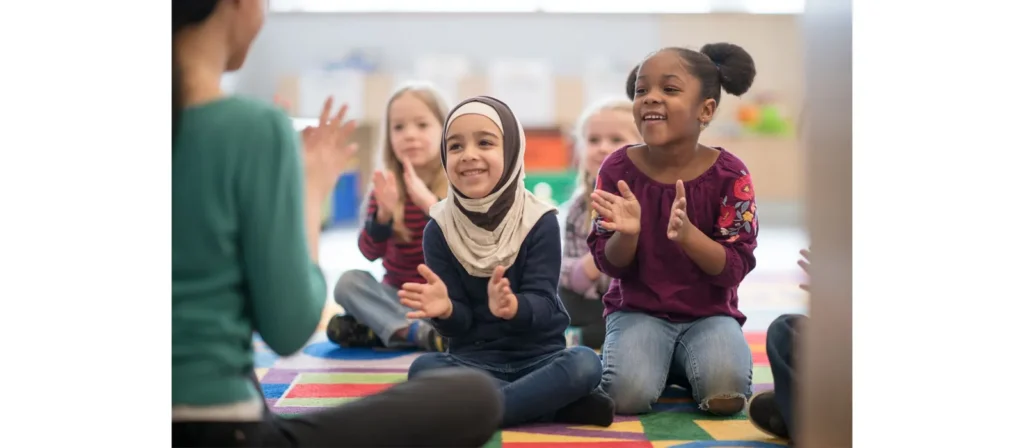
Cognitive Development Theory
Understanding how children develop cognitive abilities has been the subject of much research, particularly by theorists like Jean Piaget and Lev Vygotsky. Their work provides valuable insights into how children’s minds evolve and how to support their development.
Jean Piaget’s Theory of Cognitive Development
Jean Piaget, one of the most influential psychologists in child development, developed a theory that outlines four distinct stages of cognitive development. He believed that children pass through these stages in a set order, each stage representing a different way of thinking.
History of Piaget’s Theory of Cognitive Development
Piaget’s theory emerged in the early 20th century. He based his ideas on observations of his children, noticing that their thinking became more complex as they matured. His research laid the foundation for modern cognitive psychology and helped educators and parents understand children’s learning stages.
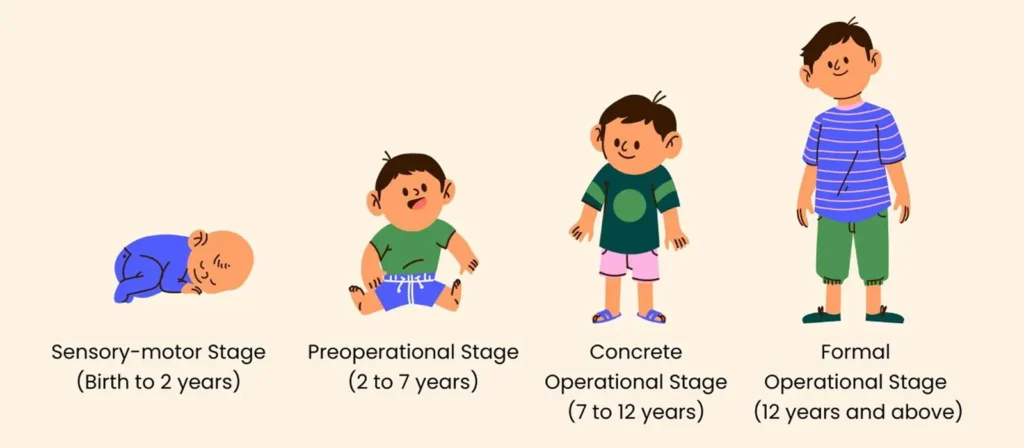
Piaget’s Four Stages of Cognitive Development
1. Sensorimotor Stage (Birth to 2 years old)
In the sensorimotor stage, infants learn about the world primarily through motor and sensory activities. They begin by using reflexes, such as sucking and grasping, but over time, they start to engage with their environment in more complex ways. For example, they will intentionally grasp and manipulate objects, understand object permanence, and learn basic cause-and-effect relationships.
Key Characteristics:
- Development of motor skills like grasping, reaching, and crawling.
- The infant’s awareness of their body and their environment.
- Emergence of object permanence (understanding that objects continue to exist even when not in sight).
- The infant’s ability to develop basic mental representations of objects.
Developmental Changes:
- Initially, infants act based on reflexes, but later, they interact intentionally with the environment.
- At the end of this stage, infants can anticipate the outcomes of their actions, such as shaking a toy to make noise or throwing an object to watch it fall.
2. Preoperational Stage (2 to 7 years old)
Children in the preoperational stage develop the ability to use symbols, such as words and images, to represent objects and experiences. This is the stage where language skills dramatically increase, and children begin to engage in pretend play. However, their thinking remains egocentric, meaning they have difficulty seeing things from other people’s perspectives. Additionally, their logic is not fully developed, making them prone to thinking more illogical and rigidly.
Key Characteristics:
- The ability to engage in symbolic thought (using words and images to represent objects).
- Increased use of language.
- Egocentrism (difficulty understanding others’ perspectives).
- Animism (attributing human qualities to inanimate objects).
- Centration (focusing on one aspect of a situation and neglecting others).
Developmental Changes:
- Children begin to form and recall mental images of objects that are not present.
- Their imagination is rich, as seen in their engagement with pretend play, but their understanding of the world is still limited to their viewpoint.
- They begin to ask questions and seek explanations but struggle with more complex reasoning and conservation tasks (e.g., understanding that a quantity of liquid remains the same even if poured into a differently shaped container).
3. Concrete Operational Stage (7 to 11 years old)
A significant improvement in logical thinking marks the concrete operational stage. Children can perform mental operations on concrete objects and events at this stage. They begin to grasp the concept of conservation (that quantity remains the same despite changes in form) and can classify objects based on various characteristics. However, their thinking is still grounded in concrete reality, and they struggle with abstract or hypothetical reasoning.
Key Characteristics:
- Understanding conservation (e.g., knowing that liquid remains the same despite being poured into a differently shaped container).
- Improved logical thinking regarding concrete objects.
- The ability to classify objects based on shared characteristics.
- Development of seriation (the ability to arrange objects in a sequence based on a characteristic such as size or number).
- The understanding of reversibility (that objects can be transformed and then returned to their original state).
Developmental Changes:
- Children in this stage are more logical and can solve problems systematically.
- They can mentally manipulate and organize objects and understand relationships between size, weight, and volume.
- However, they still find applying logic to abstract or hypothetical situations challenging. For example, they may struggle to understand complex scientific or moral concepts.
4. Formal Operational Stage (11 years old and beyond)
Adolescents can think abstractly and logically about hypothetical situations in the formal operational stage. They begin considering multiple possibilities and outcomes, engage in more advanced problem-solving, and reason about abstract concepts like justice, morality, and philosophy. This is when scientific reasoning and planning for the future become possible.
Key Characteristics:
- The ability to think abstractly and hypothetically.
- The capacity for logical reasoning about abstract concepts (e.g., justice, love, politics).
- Problem-solving using a systematic and strategic approach.
- Ability to think about hypothetical situations and future possibilities.
- Development of metacognition (thinking about one’s thought processes).
Developmental Changes:
- Adolescents can solve problems more structured and methodically, using strategies like hypothesis testing and deductive reasoning.
- They start exploring and questioning concepts like ethics, justice, and morality, becoming more reflective.
- At this stage, abstract thinking allows adolescents to discuss more complex subjects and think critically about issues like identity, relationships, and society.

Vygotsky vs. Piaget: Key Differences
| Aspect | Jean Piaget | Lev Vygotsky |
|---|---|---|
| Theory Type | Cognitive developmental stages | Sociocultural theory of cognitive development |
| Focus | Individual cognitive development | Social interactions and culture’s role in development |
| Role of Language | Language follows cognitive development | Language is central to cognitive development |
| Influence of Culture | Minimal role in development | Cultural context is essential for learning |
| Learning Process | Children develop independently through stages | Children learn through interaction with more knowledgeable individuals |
| Concept of Development | Development is universal and sequential | Development is shaped by social and cultural influences |
Preschoolers’ Cognitive Development Milestones
During early childhood, children go through numerous cognitive milestones. These critical points in a child’s development show how their thinking and problem-solving abilities evolve. Below are some of the cognitive milestones preschoolers typically achieve:
1. Questioning
Around age 3, children begin to ask more questions about the world around them. They are curious about how things work, why things happen, and what causes certain events. This marks the beginning of abstract thinking.
2. Spatial Relations
Children start to understand the relationship between objects in space. They develop an understanding of concepts like direction, distance, and position. This is often demonstrated through activities like building with blocks or playing hide-and-seek.
3. Problem Solving
Preschoolers begin to solve simple problems on their own. They experiment with different ways to approach challenges, such as figuring out how to fit puzzle pieces together or overcoming game obstacles.
4. Imitation
Imitation plays a huge role in cognitive development. Children mimic the behaviors they see around them, which helps them understand and adopt social and cognitive skills. They also learn through role-playing and pretending.
Transform Your Classroom with Custom Furniture Solutions
5. Memory
Preschoolers start to remember past experiences and apply that knowledge to future situations. They may also remember instructions or routines more clearly.
6. Number Sense
By age 4 or 5, many preschoolers begin understanding basic number concepts, like counting, recognizing numbers, and even understanding simple addition and subtraction.
7. Pretend Play
Pretend play allows children to explore different scenarios and roles, which nurtures creativity, social understanding, and cognitive flexibility. Whether pretending to be a doctor, teacher, or parent, children practice problem-solving, communication, and abstract thinking.
8. Simple Reasoning
Preschoolers begin to engage in simple reasoning, connecting cause and effect. They may start to understand that their actions lead to certain outcomes (e.g., if they throw a toy, it will fall).

Stages of Cognitive Development
Cognitive development in children progresses through well-defined stages, each marked by unique milestones and cognitive abilities. Understanding these stages will help you recognize the key changes in your child’s development, enabling you to provide support at each phase.
Birth to 2 Months
During the first two months, infants begin to develop early cognitive skills. At this stage, babies primarily focus on sensory experiences and reflexive actions. They start to engage with their surroundings by responding to stimuli like touch, sounds, and light.
- Focus on faces and objects within 8-12 inches.
- Begin tracking movement with their eyes.
- Display reflexes like rooting and sucking.
- Start to make cooing sounds.
- Develop early recognition of familiar voices.
2 to 6 Months
From 2 to 6 months, infants become more aware of their surroundings. They develop early motor skills and begin responding to external stimuli more intentionally. During this stage, infants start learning from their environment and engaging in early forms of communication.
- Begin to recognize familiar faces and voices.
- Display increased alertness and interest in the environment.
- Start to reach and grab objects, developing hand-eye coordination.
- Begin responding to their name and simple sounds.
- Develop stronger reflexes, like reaching for objects and holding onto them.
6 to 12 Months
Between 6 and 12 months, babies start to develop object permanence (the understanding that objects continue to exist even when they can’t be seen), a significant milestone in cognitive development. Infants also begin experimenting with their environment, using their hands and mouths to explore objects.
- Develop object permanence (understanding that objects still exist when hidden).
- Understand cause and effect (e.g., shaking a rattle to make noise).
- Start to crawl and explore the environment.
- Imitate simple actions (e.g., clapping or waving).
- Use basic gestures to communicate (e.g., reaching for items).
12 to 18 Months
At this stage, toddlers begin engaging in purposeful exploration. They start imitating adults more frequently and begin to solve simple problems. Their language skills also expand as they start using their first words.
- Begin to walk and engage in simple motor activities.
- Imitate actions they see adults perform (e.g., brushing hair or using utensils).
- Develop the ability to follow simple directions (e.g., “Give me the ball”).
- Begin to express preferences (e.g., favorite toys or foods).
- Start using a few simple words like “mama,” “dada,” and “no.”
18 Months to 2 Years
From 18 months to 2 years, toddlers engage more in symbolic play (using objects to represent other things). They also expand their vocabulary and grasp simple concepts such as colors, shapes, and sizes.
- Engage in pretend play (e.g., pretending a block is a car).
- Use two- or three-word phrases (e.g., “Want cookie”).
- Develop the ability to follow multi-step directions (e.g., “Pick up the toy and put it on the shelf”).
- Understand basic concepts like “in,” “out,” “up,” and “down.”
- Start showing independence (e.g., wanting to dress themselves).
2 to 3 Years
During this period, children’s cognitive abilities become more advanced. They begin to understand basic concepts like time (past, present, future), and their memory improves. They also start to question the world around them more and seek explanations.
- Begin to ask “why” questions frequently.
- Show an interest in books and stories.
- Improve in following complex instructions.
- Start using simple reasoning to solve problems (e.g., figuring out how to build a tower with blocks).
- Begin to understand the concept of numbers and counting (e.g., recognizing “one” or “two” objects).
3 to 4 Years
By 3 to 4, children develop more advanced reasoning skills and become capable of more complex imaginative play. They start understanding concepts of classification (grouping objects based on characteristics) and can follow simple logical steps.
- Engage in more complex pretend play (e.g., pretending to be a doctor or teacher).
- Understand simple classification (e.g., grouping animals by size or color).
- Recognize and name common shapes and colors.
- Begin to understand simple cause-and-effect relationships.
- Have a growing vocabulary, often using four or more words in sentences.
4 to 5 Years
At this stage, children master more advanced cognitive skills, such as understanding time, learning basic math concepts, and engaging in more structured problem-solving activities. They also become better at following rules in games and group activities.
- Begin to recognize and write some letters or numbers.
- Improve in recalling events or stories from the past.
- Understand concepts of time like yesterday, today, and tomorrow.
- Develop a sense of ownership and understand fairness (e.g., sharing toys).
- Use more complex language (e.g., asking questions like “Why does the moon shine?”).
5 to 6 Years
Children in this age range begin to think more logically about concrete objects and events. Their cognitive development includes grasping mathematical concepts and recognizing patterns in the world around them. They also start to engage more in social interactions with peers.
- Begin simple addition and subtraction (e.g., “2 + 2 = 4”).
- Recognize patterns and use them to predict outcomes.
- Improve memory recall (e.g., remembering details from stories or events).
- Engage in cooperative play with peers, learning about sharing and empathy.
- Ask more sophisticated questions about the world (e.g., “How do airplanes fly?”).
6 to 12 Years
Children between 6 and 12 years can think more logically and systematically. Their reasoning becomes more advanced, and they can work through multi-step problems. Social cognition also improves as children learn more about social rules and dynamics.
- Understand and apply logical rules (e.g., sorting objects by multiple characteristics).
- Improve problem-solving abilities (e.g., solving math problems or figuring out puzzles).
- Increase their attention span and focus on tasks.
- Understand more abstract concepts like fairness and justice.
- Improve social skills, learning to cooperate and negotiate with peers.
12 Years and Older
Adolescence marks the beginning of formal operational thinking, where children can abstract reasoning and hypothetical thinking. They can plan for the future, think critically about different viewpoints, and engage in more complex problem-solving tasks.
- Develop the ability to think abstractly (e.g., about hypothetical situations).
- Engage in critical thinking and questioning assumptions.
- Begin forming personal values and beliefs.
- Plan for future events and understand the consequences.
- Think logically about complex problems and evaluate different solutions.

Activities to Promote Children’s Cognitive Development
Fostering cognitive development in children involves providing them with age-appropriate activities that promote problem-solving, creativity, and learning. Below are specific activities tailored for each age group to encourage cognitive growth.

1. Newborns
Newborn activities should focus on sensory stimulation and early bonding. These activities help newborns process sensory input and build foundational neural connections for later cognitive development.
Activity Ideas:
- Tummy Time: Lay your baby on their tummy to help them develop neck and shoulder muscles while exploring their surroundings.
- Visual Tracking: Use black-and-white or high-contrast toys to encourage babies to track objects with their eyes.
- Gentle Rocking and Soothing Sounds: Gently rock your baby in a crib or stroller while singing lullabies or playing soft music to engage auditory senses.
- FaceTime: Hold your baby close to your face and make eye contact to encourage visual recognition and social engagement.

2. Infants
Infants aged 2 to 6 months are becoming more active with their senses and motor skills. Activities at this stage should focus on developing these senses and encouraging early communication.
Activity Ideas:
- Reaching for Toys: Encourage your infant to reach out and grasp a colorful toy. This helps improve hand-eye coordination and fine motor skills.
- Mirror Play: Hold a mirror in front of your baby and make facial expressions to help them learn to recognize faces and emotions.
- Rattling Toys: Shake a rattle near their ears to help develop auditory skills and cause-and-effect understanding.
- Reading to Your Baby: Reading simple picture books with large images helps introduce language and visual recognition.

3. Toddlers
Toddlers between 12 and 24 months explore the world around them more actively. Activities at this stage should encourage walking, talking, and problem-solving while enhancing their language and social skills.
Activity Ideas:
- Stacking Blocks: Provide soft or wooden blocks for toddlers to stack, which will improve their spatial awareness, coordination, and problem-solving.
- Interactive Books: Press books with flaps, textures, or buttons. This promotes language development and sensory engagement.
- Imitation Play: Encourage toddlers to mimic actions such as brushing their hair, sweeping, or pretending to cook. This promotes symbolic thinking and social skills.
- Hide-and-Seek: Play hide-and-seek with toys to enhance object permanence and encourage problem-solving.
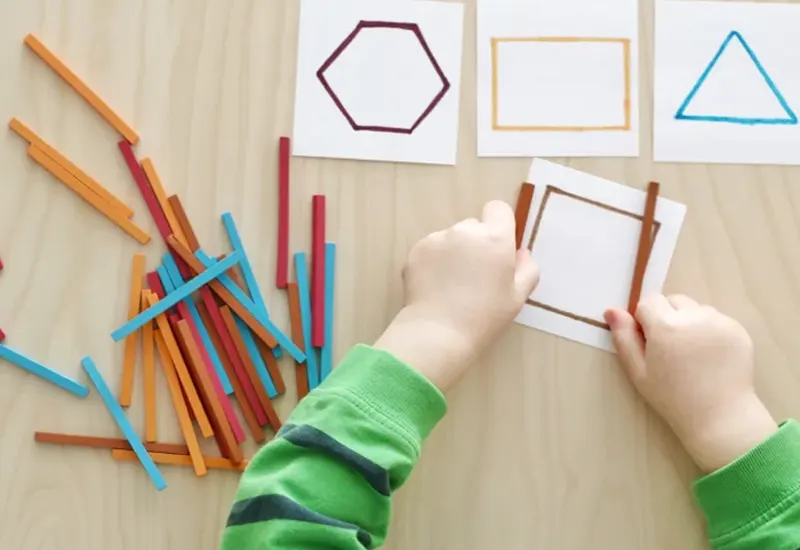
4. Preschoolers
Preschoolers (ages 3 to 5) are beginning to understand basic concepts and engage in more complex thinking. Activities should encourage creative play, critical thinking, and language development.
Activity Ideas:
- Pretend Play: Provide costumes or props to stimulate imaginative play, like pretending to be a doctor, chef, or firefighter.
- Puzzle Solving: Simple jigsaw puzzles help develop spatial reasoning and problem-solving skills.
- Counting Games: Count toys, steps, or objects around the house to introduce basic math concepts like numbers and quantities.
- Drawing and Coloring: Encourage free drawing or coloring with crayons to enhance fine motor skills and creativity.
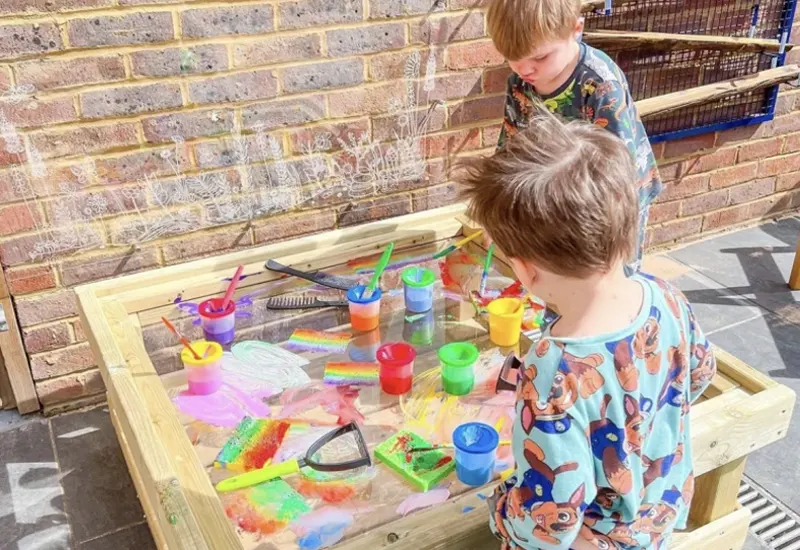
5. Children (7-9 years)
Children in this age group are refining their cognitive abilities, such as logical thinking and problem-solving. Activities should involve structured tasks that challenge them while allowing them to apply learned skills.
Activity Ideas:
- Board Games: Games like “Connect 4” or “Candy Land” teach strategy, patience, and turn-taking while promoting cognitive skills.
- Memory Games: Use card-matching games to improve memory and concentration.
- Simple Science Experiments: Conduct experiments like mixing baking soda and vinegar to demonstrate basic scientific principles.
- Storytelling or Writing: Encourage your child to write simple stories or tell a narrative. This helps develop imagination, language skills, and sequencing.

6. Adolescents
Adolescents aged 10 years and older are developing abstract thinking and reasoning skills. Activities should challenge their critical thinking, social awareness, and ability to solve complex problems.
Activity Ideas:
- Debates and Discussions: Discuss thoughtful topics (e.g., ethics, current events). This helps with reasoning, listening, and articulating their thoughts.
- Strategy Games: Introduce strategy-based games like chess or checkers, which require planning, foresight, and critical thinking.
- Creative Writing Projects: Encourage adolescents to write essays or short stories, helping them develop their writing, critical thinking, and creativity.
- Research Projects: Let them choose a topic of interest and guide them to research and present their findings. This helps develop research skills and the ability to synthesize information.
Common Cognitive Development Challenges in Children
While most children follow a typical trajectory for cognitive development, some may experience challenges that delay their cognitive progress. Early identification of these issues can help ensure that children receive the support they need to thrive.
1. Learning Disabilities
Learning disabilities, such as dyslexia and dyscalculia, can affect a child’s ability to read, write, and understand mathematical concepts. These conditions are not linked to intelligence but can make it difficult for children to perform well in school without specialized support.
2. Attention Disorders
Attention disorders, like ADHD, can impact a child’s ability to focus, follow instructions, and complete tasks. These children may struggle with memory and concentration, which can delay cognitive development in certain areas.
3. Developmental Delays
Some children may experience developmental delays, affecting speech, motor skills, or socialization. These delays can impact cognitive development, making it essential for parents and caregivers to seek early intervention.

Signs of Delayed Cognitive Development
Recognizing signs that a child’s cognitive development might be delayed is important. These signs can vary, but common indicators include:
- Lack of interest in exploring the environment
- Difficulty recognizing familiar people or objects
- Limited ability to solve simple problems or manipulate objects
- Limited language development or difficulty forming sentences
- Lack of social interaction or difficulty understanding social cues
- Difficulty with basic concepts like numbers, time, or cause and effect
If these signs are present, consulting with a pediatrician or developmental specialist may help determine whether further intervention or support is needed.
Practical Tips for Encouraging Cognitive Skills in Children
Parents and educators can use various strategies to support cognitive development at home or in the classroom. Here are some practical tips:
- Provide hands-on learning opportunities: Activities like building with blocks, cooking, or gardening allow children to practice critical thinking and problem-solving skills.
- Read together regularly: Reading improves language skills and enhances memory, attention, and comprehension.
- Encourage open-ended play: Activities like art, building, and pretend play allow children to use their imagination and creativity while developing cognitive skills.
- Ask open-ended questions: Instead of asking yes/no questions, prompt children with questions encouraging critical thinking and reasoning.
- Create a stimulating environment: Offer a variety of toys, books, and activities that challenge children to think, explore, and learn.
FAQs About Cognitive Development in Children
- How can parents support their child’s cognitive development?
Parents can support cognitive development by providing a stimulating environment, encouraging play, reading regularly, and offering exploration and social interaction opportunities. - What are the key milestones in cognitive development during infancy?
Key milestones include recognizing familiar faces, developing object permanence, and beginning to speak or babble. - How does technology affect cognitive development in children?
Technology can support learning, but excessive screen time may hinder social interactions and cognitive development. A balanced approach is recommended. - What role does nutrition play in cognitive development?
A balanced diet with essential nutrients such as omega-3 fatty acids, iron, and vitamins supports brain health and cognitive abilities. - What activities are best for promoting cognitive development in toddlers?
Activities such as simple puzzles pretend play and sorting games help toddlers develop cognitive skills such as memory, categorization, and problem-solving. - What cognitive skills should children develop by age 7?
By age 7, children should be able to engage in strategy games, solve basic math problems, and improve their memory and comprehension skills. - At what age do children begin to think abstractly?
Children typically begin to think abstractly during the formal operational stage, which begins at around age 12 and continues through adolescence. This stage is marked by the ability to think logically about abstract concepts and hypothetical scenarios. - What is the first stage of cognitive development?
The first stage of cognitive development is the sensorimotor stage, which spans from birth to around two years. During this stage, infants explore the world through their senses and develop the concept of object permanence. - Can the environment influence cognitive development?
Yes, the environment plays a significant role in cognitive development. A stimulating environment with learning, exploration, and social interaction opportunities can promote healthy cognitive growth. - At what age does cognitive development start?
Cognitive development begins at birth and continues throughout childhood. Early experiences shape a child’s brain.
Conclusion
Cognitive development is a vital aspect of early childhood education that shapes a child’s ability to think, learn, and grow. By understanding the key stages and providing enriching environments and experiences, we can support children’s cognitive growth and set them up for future success. Whether through play, structured learning, or specialized educational approaches, fostering cognitive development today will lead to brighter, more capable futures for our children.

